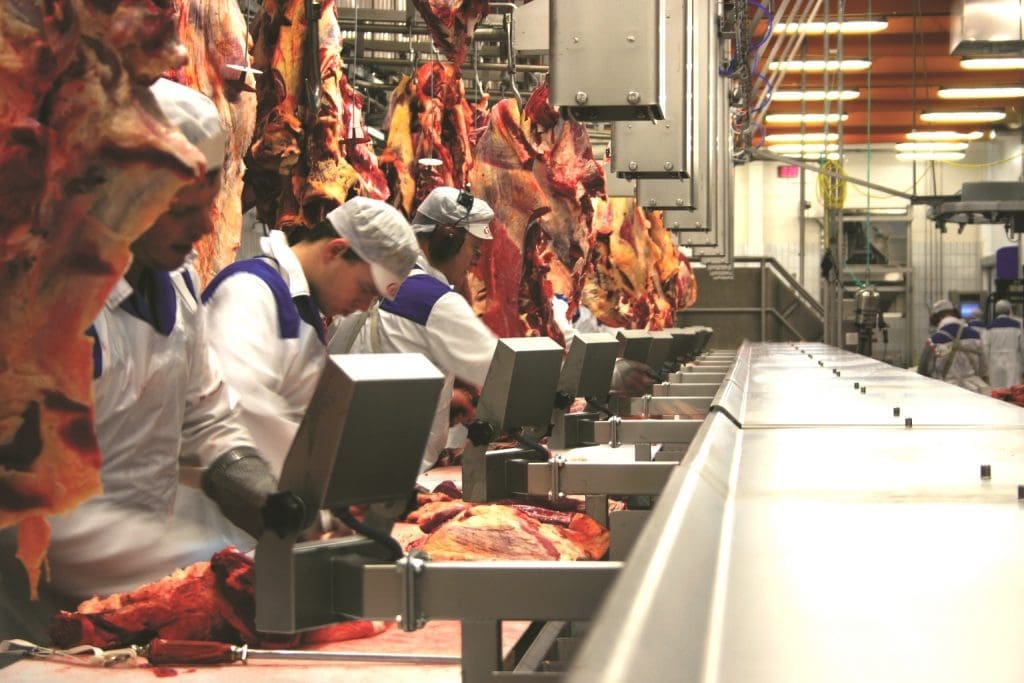
RED meat processors were on tenterhooks yesterday over warnings of an electricity shortage creating power disruptions.
Possible outages have been predicted again for tonight, with consumers in Queensland and New South Wales warned to minimise their electricity consumption. The shortage has come after the Australian Energy and Market Operator (AEMO), which manages the national electricity network, put a $300 per megawatt hour price cap on generators, with some of them subsequently reducing their availability.
“This has contributed to forecast supply shortfalls, along with generation units being offline for planned maintenance and repairs,” the AEMO said in a statement this morning.
“Supply reserve shortfalls (lack of reserve 2 and 3) are currently forecast in Queensland and New South Wales this evening (approximately 5pm to 9pm). AEMO has issued market notices to encourage more generation at these times.
“The price cap will remain in place at least until the end of the trading day (4am), after which it will only remain in place if the cumulative price threshold is still exceeded. The market will be notified when the cap is lifted.”
While red meat processors some states were off work celebrating a Queen’s Birthday holiday yesterday, others, like those in Queensland were at work under normal shifts. None were given any assurances about uninterrupted power supply during the day, from what Beef Central was told.
If a power outage occurred after hours, impact was restricted mostly to refrigeration systems and cold storage. Well-built carcase and carton chillers would tolerate up to 8-12 hours without power, without compromising cold chain, one processor said. Most abattoirs did not have emergency generators on site for such events, however.
But if power went out during a production shift, operations would be more seriously impacted, immediately grinding to a halt. A typical beef processing plant has literally thousands of electric motors in use across the site, powering everything from pumps to computer systems and conveyor belts.
“There’s nothing you can do. We were told that any power outages yesterday would likely only be reasonably short, but who knows. You can hardly have staff standing around, waiting for the lights to go back on,” one processor said.
“I don’t think anybody truly knows the state of it all.”
Energy cost spiral could threaten business
One large export processor said beyond the immediate threat of power outages this week, an even greater concern was the ongoing cost spiral for energy of all forms – electricity and gas.
In his multi-site business, the gas bill going forward looked like rising 300pc next year, compared with the current price. The more extreme rises in price had only really started to rise four to six weeks ago, he said.
“And that’s considered a good price, if you are savvy enough to secure it. Others trying to lock in a forward contract are looking at a rise of around 400pc for gas next year.”
“When you apply that over an annual gas requirement worth many, many millions of dollars, it adds up to a lot of money. And electricity is a similar story. We are looking at a rise of 220pc in forward contracts for next year, compared with current price.”
He said the same story applied in his company’s operations in southern states.
“If we want to operate, we have no option. We think it could pressure some processors later this year, over whether they operate or not, in the current high-cost environment. They are already facing losses on every animal they process, at current prices. Some may decide it is better to pull up, until the sums look better.”
Asked what could be done to further moderate energy use in plants, the processor said much of the ‘low-hanging fruit’ in terms of energy efficiency improvement had already been done.
“Beef processors have spent a fortune in recent years on issues like more efficient refrigeration and steam generation. Most of the big-ticket things have been done, so there is not a lot of upside there. We are just lumped with it.”
The processor contact said it depended somewhat on what each operator’s current energy deal was.
“Are they actually locked-in, or working off spot energy prices? Not everybody will be locked-in to contracts. Everybody in the processing industry does something different, but even those that currently have a bit of shelter against spiralling costs will only have that benefit for a period. Sooner or later everybody has to pay a lot more for energy.”

It was inevitable that it would come to this, and the greatest sympathy has to be felt for the processors, and those businesses upstream and downstream who are also impacted.
How did we get here? Well, the greatest offence rests with the ignorance of those who repeatedly, relentlessly and unthinkingly called for more and urgent renewables, together with the more and urgent discontinuation of proven coal and gas baseload power.
Tragically, those offenders were and are unable or unwilling to grasp the obvious, and that is that a majority of sensible Australians agree that Australia should move towards renewables. provided baseload power is sensibly transitioned to a low or zero emission alternative, over whatever time that takes.
Instead, we got climate alarmism, aided and abetted by media editors and outlets. Under the umbrella of “providing both sides of the story” the daily media wide publication of releases about industry adoption of low emission programs and similar climate change gestures and posturing gave invalid credibility to the offenders. The measurement of that invalidity rates, in degree, with attempts to justify a national negligence, and the media, which argues that it is ‘only presenting the options for the public to consider’, carry partial responsibility. The ‘offenders’ may not have had the intelligence to grasp the obvious, but collectively the wider media did. That it chose not to is inexcusable. Having said that, I appreciate that Beef Central strives to publish balanced industry reports, and deserves credit for doing so.